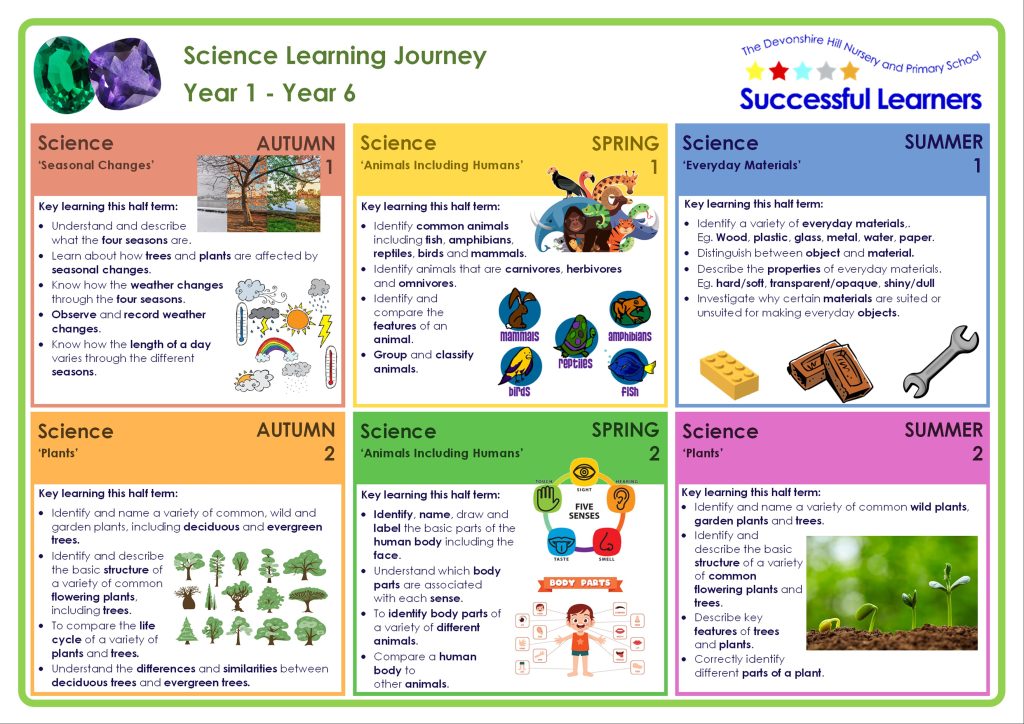Science Learning Journey
Click on the image below to view our Science Learning Journey:

Our intent
A high-quality science education provides a foundation for understanding the world, the ability to develop scientific knowledge and conceptual understanding through the specific disciplines of biology, chemistry and physics. Grow an appreciation of the beauty of the natural world and the plants and animals, including humans within it. We want all our children to have a sense of enjoyment and curiosity about the subject. We intend for every child in our school to be equipped with a sound understanding of scientific knowledge required to understand the uses and implications of science, today and for the future.
The implementation
We follow the National Curriculum for science and all classes have timetabled science lessons. We have a working scientifically approach to enable children to apply scientific enquiry, observations over time, pattern seeking, identifying, classifying and grouping. Children will develop skills such as researching using secondary sources. Children will seek answers to questions through collecting, analysing and presenting data. Children will take part in comparative and fair testing (controlled investigations) much of the practical work will take place in our dedicated STEAM Engine, which is a very well equipped resource for Science, Technology, Engineering, Art and Maths.
The school has it very own Forest School on site, March Wood. It is here that the children will be able to experience a range of activities that will broaden their scientific knowledge and understanding first hand.
Science is planned along with the National Curriculum, from year 1 through to year 6. With this approach, science is planned and sequenced which ensures careful cumulative coverage, building the children’s scientific knowledge in a secure way. Technical terminology is taught and the children are encouraged to be familiar with and use confidently the terminology in an accurate and precise way. They will build up an extended specialist vocabulary. They will apply their mathematical knowledge to their understanding of science, including collecting, presenting and analysing data.
The teaching of science will be enriched with field trips, visits to places of scientific interest, such as the science museum in London, specialist visitors to the school and involvement in local science events and competitions.
Impact
We believe that every child should have a secure bank of scientific knowledge and experiences to enable them to confidently embrace the challenges of secondary school science curriculum. We aim for the children to be ready to engage in more sophisticated discussion of experimental design and control. Teachers use assessment for learning strategies as well as engaging in conferencing activities to identify and to address any misconceptions immediately. Each half term children from year 1 to year 6 are assessed for their progress and understanding in science lessons, by the teacher, and this is tracked over time.
